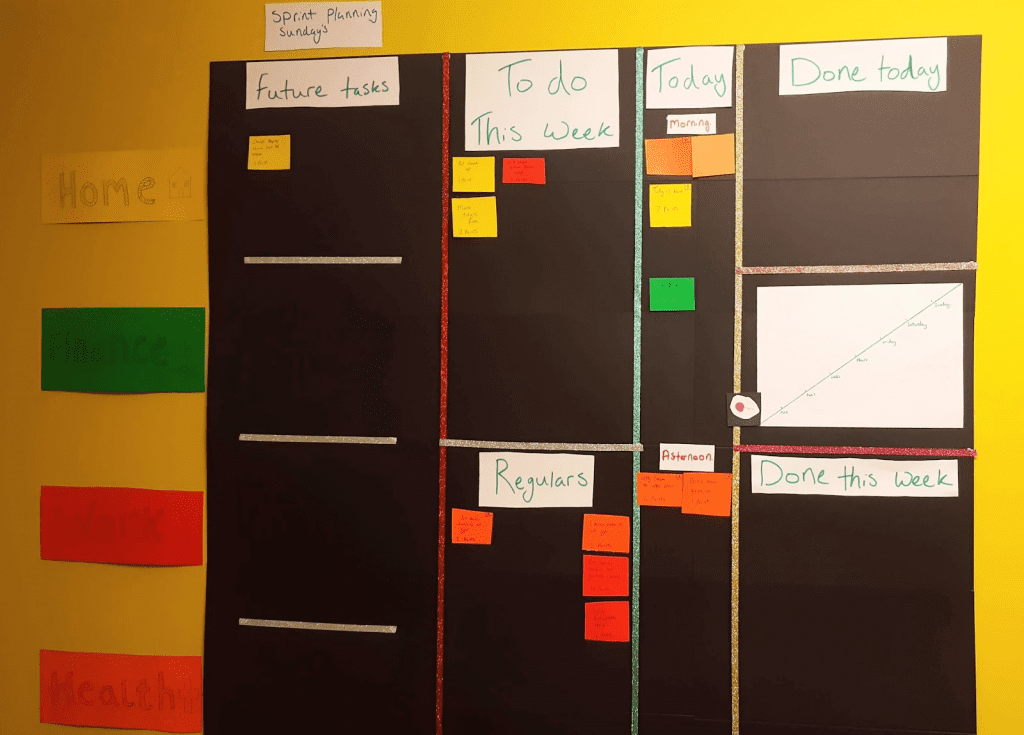
Who Home Scrum might be useful for
Who could benefit from Home Scrum?

Scrum is used to help small groups of people to generate “adaptive solutions for complex problems.” A lot of things fit in the category of a complex problem, including life itself. In a sense, it doesn’t matter what you’re aiming for, because Scrum can accommodate pretty much any goal. But that doesn’t mean that doing Home Scrum is the right solution for everybody. How can you tell if Home Scrum might be useful for you?
I have written this blog with neurodivergent people in mind. My experience has centred around helping my husband Francis with his ADHD and myself with anxiety, and so this is what I mainly refer to in the posts, but I believe that Scrum could potentially be helpful for many kinds of neurodivergence. For instance, I have included a story from my friend Paul about how he has used Home Scrum to help his son with autism. Scrum is especially well suited for anyone with limited executive functioning (the ability to visualise, plan ahead and be motivated by long-term consequences). Of course, I hope this book is still relevant for anyone, neurodivergent or not, who struggles to give themselves structure. If your life seems chaotic and hard to coordinate, and you think that involving other people would help you in your quest to stay organised, then Home Scrum could be a good fit.

However, even if you are neurodivergent, Home Scrum still might not be the right answer for you. For instance, I helped my good friend Alex, who has ADHD, to set up a Home Scrum board on her wall, and she was very enthusiastic about the idea. However, it turned out that externalising all her tasks in this way felt too overwhelming. Here’s what she said:
“I was really excited when Sally and Francis introduced Scrum to me. It sounded like a fantastic system, and when I saw their board I was really motivated by it. I was really glad to have Sally’s help in designing my own board and putting it up.
“Unfortunately, it ended up making me feel more anxious, because it captured everything I should be doing. If I didn’t manage to do one thing, it’d sit on my mind way more than before, like the board was magnifying my guilt. I’m already quite neurotic about that kind of thing, because with ADHD, you’re chronically underperforming throughout your whole life, so you have this base narrative of ‘you’re not doing enough, you’re lazy.’ Because the board highlighted that I wasn’t doing even some basic things, it made it worse. All I was seeing from the board was a list of ‘haven’t done that, haven’t done that, haven’t done that.’
“If I did it again, I wouldn’t put every little thing onto it. I would keep it for the bigger things, like finances—it was useful for remembering what bills I had to pay. And for home tasks, I wouldn’t use it for the normal stuff, but if it was like, ‘Put a screw up here’, I’d use it for that. And I wouldn’t try and keep it going on my own. I felt worse because I would avoid looking at the board and then think, ‘For God’s sake, I can’t even be accountable to myself.’”

The point is, Scrum is a high-effort solution to the productivity problem, and it is probably only going to be worth it for those who have reached a certain threshold of pain from not being able to organise their lives. This was the case for Francis and me; nothing else had worked for us, or provided an overarching structure in which we could contain every aspect of our lives. To us it is worth the effort of maintaining a complex system like Home Scrum because that effort is far more effective than the wasted effort we were putting in before. If you can get away with less, good! Please do. Much as I love Scrum, I have used many other methods of keeping myself going and making sense of things over the years, and I am quite fond of some of those too. I have compiled a list of posts about my favourites which I think might also be relatively brain-friendly, along with a small description and any tips or warnings I have about their use.
It’s also true that Home Scrum might be a good solution for you for a while, but perhaps you won’t need such an intensive solution forever, or there may be times when a break from using it is appropriate. I’ve written about times we’ve stopped using Home Scrum. I know well the excitement of discovering a new solution that I think will work, and I often indulge in imagining that it is going to solve all my problems and make life easy. It’s good to harness that excitement into action and to hope that change is possible—because it is!—but it is also healthy to realise that Home Scrum will take a bit of work, and it won’t go perfectly all the time. It’s better to anticipate moments of falling off the bandwagon, because then you’re less likely to panic about it and you’ll be quicker to reassess and decide to continue using Home Scrum if it’s right for you.







